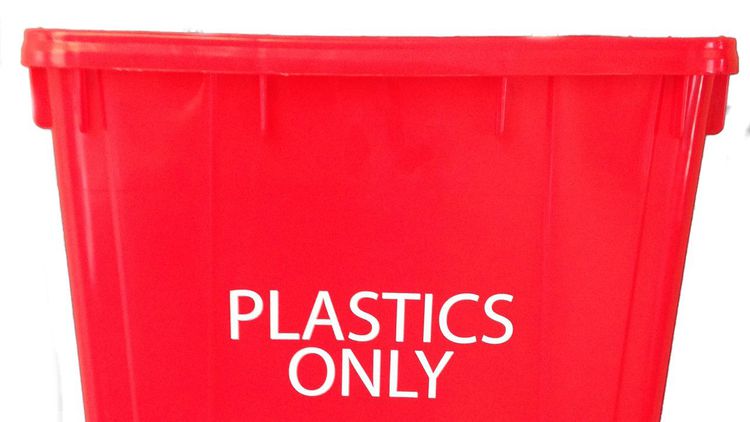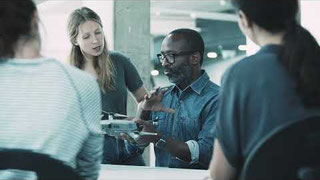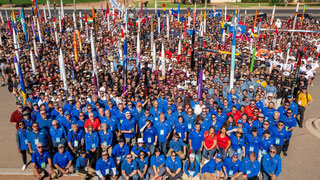The PLASTIKA REPARABILIS CHALLENGE
Phase One: The PLASTIC TRUTH CHALLENGE; the breakthrough consists of people around the world showing us your user experience of everyday plastics and the way you dispose of them through a 2 (two) minute video.
- Only the first 100 videos will be considered for a cash prize
- Make your video in your own language and put subtitles in English
- 10 Cash Prizes of $100 each
- Winner videos will be edited together to make a promotional and marketing video for Phase Two: the PLASTIKA REPARABILIS Challenge
- Refer to the Guidelines for more information.
What You Can Do To Cause A Breakthrough
- Click "Follow the Challenge" above to be notified of any status updates to the challenge.
- Click "Yes Sign Me Up!" above to pre-register for the challenge. You will be notified of any status updates and be able to create an entry to the challenge when it opens.
- Click on the "Share" button or social media icons above to share this challenge with your friends, your family, or anyone you know who has a passion for discovery.
- Leave a comment in our Comments Thread to join the conversation, ask questions or connect with other innovators.
Additional rules
Please do not send technical, mechanical or engineering solutions at this time. Save them for Phase Two.
Who can participate:
Phase One of the PLASTIC TRUTH Challenge is open to everyone of all ages. Kids, young adults, adults, seniors, are all encouraged to enter. To be eligible to compete, you must comply with all the terms of the Challenge as defined in the Challenge-Specific Agreement.
The Problem
Plastics are made, sold, transported, used and discarded in every corner of our planet.
1. Plastics manufactured in Europe sold in the Canadian market and discarded in Canada, can potentially pollute this country's land, air and water environments.
2. The oceans currents or gyres are interconnected so when a plastic item ends up in the Pacific, it will make its way to the Atlantic or the Arctic.
- Some plastics like Polystyrene is 100% recyclable but it is mostly wasted in the garbage.
- Plastic straws and stirrers can be recycled but no one throws them in the recycling bin.
- Compostable dinnerware is thrown into recycling bins contaminating the recycling system.
- Recyclable plastic cutlery ends up contaminating the organics waste stream.
- Different cities accept different types of plastics for recycling.
- Different cities label some recyclable plastics as trash.
- Most people do not recycle plastics that they have to bring to a depo. They throw them in the garbage.
The Challenge
UpGyres audacious goal to create a future when ALL plastics are a reusable resource ALL the time is of epic proportions.
This includes creating a system for the collection and sorting of ALL recyclable, unrecyclabe, compostable and biodegradable plastics; that is why we partnered with HeroX.
The present system for collection and sorting of plastics is intricate and fragmented and it is the main driver for littering and for lack of recycling.
The underlying reasons not all plastics are recyclable:
- there is no market for contaminated plastics as recycled materials
- there is no market for low value plastics as recycled materials, and
- it is very expensive or impossible to recycle some plastics because of their mix of resins
Packaging and products made with plastics that are both and the same time recyclable AND unrecyclable; biodegradable AND recyclable, and compostable AND recyclable are increasingly coming into the market and ending up in the waste stream.
Every year more products and packaging made with mixed materials for economic, durability and safety reasons are ending up in the waste stream.
UpGyres Challenge is to:
Device a system that can be replicated around the world to implement 100% collection, recovery, sorting and proper reuse/disposal of ALL recyclable, unrecyclabe, compostable and biodegradable plastics.
The Opportunity:
The biodegradable plastics market is projected to grow from more than USD 2.0 Billion in 2015 to USD 3.4 Billion by 2020.
Recovery of ALL plastics represents an opportunity worth hundreds of millions in ALL different currencies.
Think of the PLASTIKA REPARABILIS Challenge as a combination of the Ansari XPrize with the NRG/Cosia ReImagine CO2 XPrize.
The Ansari XPrize was a $10M competition to usher in a new era of private space travel.
The NRG/Cosia ReImagine CO2 XPrize was a $20M global competition to incentivize technology to convert CO2 emissions into valuable products.
Both of these challenges as daunting as they may have seemed at the time are now a reality.
The PLASTIKA REPARABILIS Challenge is a 2 year, 30 million Canadian dollars global competition to incentivize the development of technologies, system(s), infrastructure and methodology to usher-in the New Plastics Economy and the New Resource Recovery Operating System for plastic barcoding, tracking, collection, sorting, separation and transfer to be reused, recycled, upcycled and recovered, leading to an optimal circular life-cycle by:
- Simplifying and standarizing the plastics collection system worldwide and,
- Making it convenient:
- for the end user to dispose of ALL the plastics with which they come into contact on a daily basis
- for haulers to optimze the collection of materials,
- for Material Recovery and Separation Facilities to monetize ALL their plastic streams and,
- for the recycling industry to utilize close loop systems and reuse those materials in the best, most profitable and environmentally responsible manner.
Why a worldwide standarization system?
Plastics are global. In 2015, Canada bought US$15 billion worth of imported plastic products.
China, Canada, Europe and the United States export plastics to the world.
The Canadian plastics industry generated approximately $20 billion worth of shipments in 2012 according to Statistics Canada.
Exports of Plastic and Rubber Finished Products in Canada reached an all time high of 340.50 CAD Million in January of 2016 as reported by Statistics Canada (cansim).
Plastics create a turnover in Europe in excess of 280 billion € per year.
Europe, Canada and the United States not only export plastics globally, they also export plastic waste.
In 2012, Canadians exported 14 per cent -- 39,900 metric tonnes or 39.9 billion kilos of recyclables to developing nations like China, India and the Philippines causing environmental and health problems.
In 2011, the 27 EU Member States exported around 3.36 million tonnes of "waste, parings and scrap of plastic" to destinations outside the EU (Extra-EU trade). The total value of the exports ran to around €961m. The export shipments were nearly all destined for Asia, with the largest part of those being sent to East Asia.
In Canada you can recycle one type of plastic in one city but not in another. We need a standard for the collection and reuse of ALL plastics everywhere in the world.
Collecting and Sorting ALL waste plastics globally will streamline and optimize the plastic waste supply, demand, distribution channels, and the sales of the out-turn products of recyclable, biodegradable, compostable and unrecyclable plastics to the right upcycler, recycler and waste-to-energy customers worldwide.
The Plastic Truth Challenge Breakthrough - What Does Success Look Like For This Challenge
For Phase One, the Plastic Truth Challenge breakthrough consists of people showing us your user experience of everyday plastics and the way you dispose of them through a 2 (two) minute video.
- Only the first 100 videos will be considered for a cash prize.
- 10 Cash Prizes of $100 CAD (one hundred Canadian dollars) each adding to a total of $1,000.00
- 10 videos will be edited into a longer video that we will use for promoting and marketing Phase Two of the Challenge.
- Details and prizes for next phase be announced at the beginning of Phase Two.
Refer to the guidelines for more information.
Selection of Winners:
Based on the winning criteria, 10 (ten) prizes of $1,00 will be awarded for a total of 1,000 Canadian dollars: DETAILS. The winners will be selected and awarded monetary prizes at the discretion of the Judging Panel.
Registration and Submissions:
Please refer to Guidelines tab of this Challenge.
All submissions must be received online, via the Challenge website. Submission reporting requirements are detailed in Judging.
Challenge Guidelines are subject to change. Registered competitors will receive notification when changes are made, however, we highly encourage you to visit the Challenge Site often to review updates.
What You Can Do To Cause A Breakthrough
- Click "Follow the Challenge" above to be notified of any status updates to the challenge.
- Click "Yes Sign Me Up!" above to register for the challenge. You will be notified of any status updates and be able to create an entry to the challenge when it opens.
- Click on the "Share" button or social media icons above to share this challenge with your friends, your family, or anyone you know who has a passion for discovery.
- Leave a comment in our Comments Thread to join the conversation, ask questions or connect with other innovators.
Additional rules
Please do not send technical, mechanical or engineering solutions at this time. Save them for Phase Two.
Who can participate:
Phase One of the PLASTIC TRUTH Challenge is open to everyone of all ages. Kids, young adults, adults, seniors, are all encouraged to enter. To be eligible to compete, you must comply with all the terms of the Challenge as defined in the Challenge-Specific Agreement.
Who can participate:
Phase One; the PLASTIC TRUTH Challenge is open to everyone of all ages. Kids, young adults, adults, seniors, are all encouraged to enter. To be eligible to compete, you must comply with all the terms of the Challenge as defined in the Challenge-Specific Agreement.
For the Plastic Truth Challenge we want to get to know your plastic user experience through a 2 (two) minute video. Make your video in your own language and put English subtitiles to it.
DO NOT send us your proposed solution (you can do that on Phase Two).
For the PLASTIC TRUTH:
- Be creative, let us into your true life of plastic use and how you dispose of it when you are done with it.
- On the video tell us a story that includes:
- your name
- your age
- where you are from / where do you live
- who you are
- what you do for school, university, work and play
- how do you fell about the plastic packaging and products in your life?
- do you think that plastic waste is dangerous for your life or for the planet?
- do you have problems where you live with plastic waste? if yes, what kind of problems?
- is plastic waste creating problems for you, your community and/or environment? if yes, what kind?
- how does plastic influence your life, your community and your environment?
- how is plastic affecting your lives and how is plastic waste affecting the lives of those around you?
- what do you think about recycling plastics?
- what are the benefits and challenges in your life of using plastics?
- what are the challenges of disposing of those plastics in the your city, town or village where you live?
- what kind of plastics would you like to see made of materials that are good for the environment and why?
- what can we do to change our behaviour?
- In your video, above all be transparent and truthful. If you litter, capture it on your video and tell us why.
- If you go out of your way to avoid disposable plastics show us how and tell us why.
- If you have no idea how to dispose of the plastics in your life, show us your frustration (or indifference) and the way you deal with getting rid of them.
- If you are a recycling enthusiast and your extended personal circle are the opposite, show us your reaction or the tension their indifference or apathy stir in you.
- Or, if you do not care about recycling and everyone you know constantly tells you to recycle; show us what is your reaction.
This doesn't have to be a movie script or a reality TV show. It can be in form of an anecdote, story or review.
Just show us what you do, how and what you feel about your use of plastics and how you dispose of them in your every day life.
- The videos that are informative, entertaining, funny, and that have all of the information requested above stand the best chances to win.
- Videos with mechanical, engineering or other techical solutions will be disqualified.
- Only the first 100 (one hundred) videos will be considered for a cash prize.
- 10 Cash Prizes of $100 each.
- Winner videos will be edited together to make a promotional and marketing video for Phase Two: the PLASTIKA REPARABILIS Challenge.
Thanks in advance.







